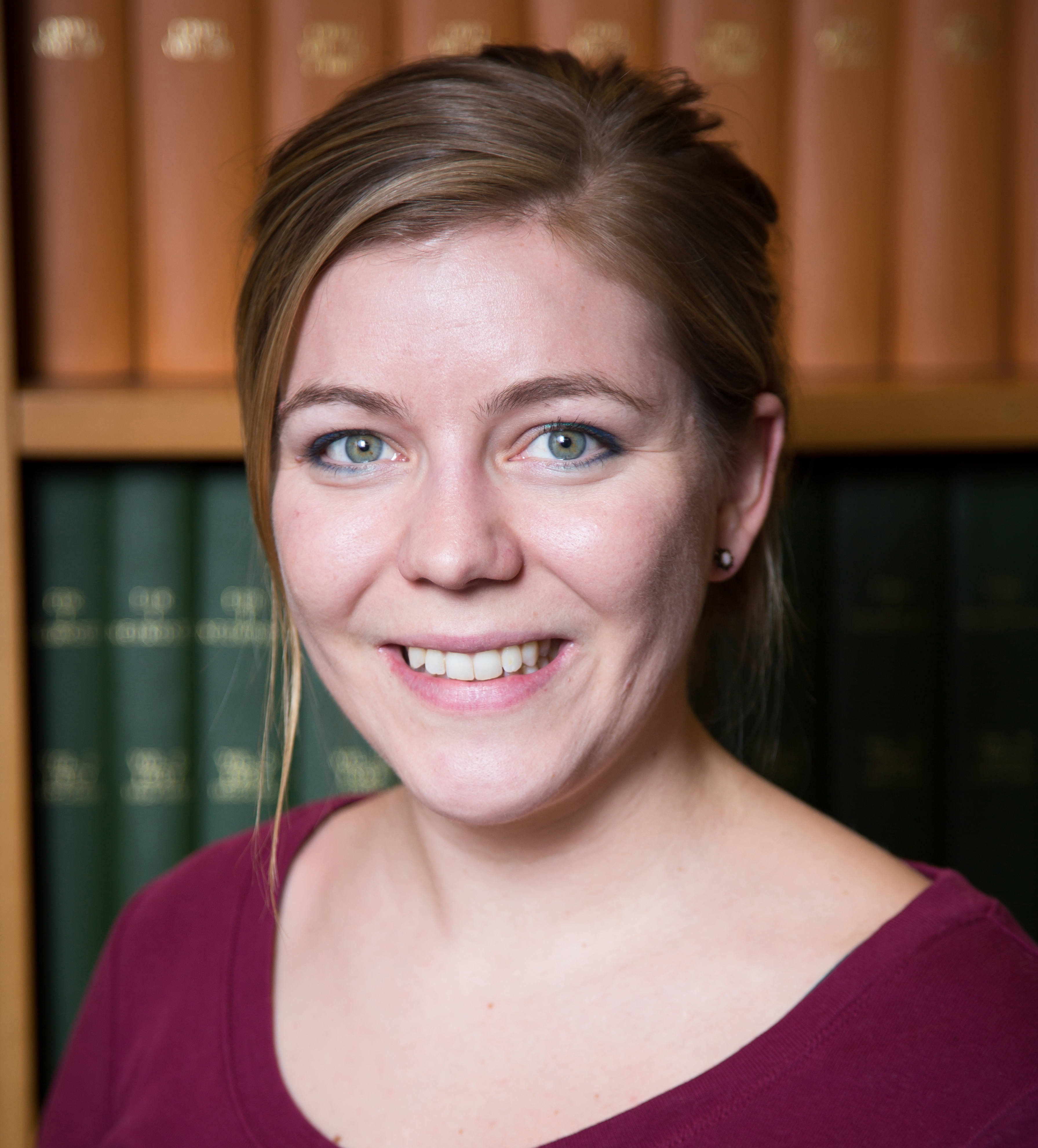
We are pleased to welcome Istvan Lukacs to the Unit. Istvan is a M.Sc. in Neuroscience student at the University of Oxford, and has joined the Dupret Group for his second lab rotation, under Mohamady El-Gaby’s supervision. During his time in the Unit, Istvan will be studying the coordination of neuronal activity across the CA1 and the CA3 regions of the dorsal hippocampus during a conditional discrimination task. This is conducted while simultaneously recording extracellular field potentials and multiple single-unit spiking, combined with optogenetic manipulations, during learning and sleep.

Congratulations to Unit D.Phil. student Dr Anders Christian Meidahl who has received a prestigious 'King Christian X of Denmark Foundation' award in support of his research on Deep Brain Stimulation and Parkinson's disease.
The Foundation is administered on behalf of the Danish Royal Family in memory of King Christian X of Denmark, and makes awards annually on the late King's birthday. The Foundation supports medical research and cultural projects.

On 16th March, the MRC Brain Network Dynamics Unit welcomed pupils and teachers to its annual Schools Open Day.
Almost 120 pupils and their teachers, from 8 state-funded and private schools in Oxford city and wider Oxfordshire, took the opportunity to visit and learn more about STEM (science, technology, engineering and mathematics) at the MRC Unit. During their visits, pupils in small groups talked informally to Unit members about key concepts and challenges in brain research, as well as what it is like being a scientist. Special emphasis was also placed on giving pupils the opportunity to try some ‘hands on’ science and to see real working instruments and laboratories for themselves. Activities were coordinated around 6 ‘knowledge stations’, at which pupils could experience some of the Unit’s core research themes, including human brain stimulation, computer modelling of brain function, electrical activity in the brain, the nerve cell networks of memory, the brain in health and Parkinson’s disease, and the use of animals in research. At the end of the visit, pupils had refreshments and were given souvenirs to take home.
Oxford City Councillors Pat Kennedy and Louise Upton, and Oxford County Councillor Lorraine Lindsay-Gale, also visited to learn more about the brain research carried out at the Unit.
Unit Deputy Director Peter Magill commented, “Another great Schools Open Day at the MRC BNDU. Visitors and Unit hosts were excited to be involved, and the two-way dialogues were clearly rewarding for all.”
The Unit’s Schools Open Day was one of many engaging events held at University of Oxford during Brain Awareness Week 2017.

Unit scientist Dr Natalie Doig has been selected to participate in I’m A Scientist, Get me out of here!, a free online outreach event where school pupils meet and interact with scientists.
Over the next two weeks, Natalie will answer questions submitted by school pupils, and engage in live online text-based chats with them. Natalie is representing the brain and wider nervous system, as part of the event’s 'Organs Zone'. Following a competition format similar to the show ‘X Factor’, the pupils are the judges and vote for their favourite scientists. The winning scientist receives £500 to spend on science communication.
Natalie, who was last year’s winner of the Unit Director’s Award for Public Engagement, commented: “The students’ questions have been coming in thick and fast. The questions are brilliant; both insightful and challenging. It is a pleasure and a privilege to take part. If I win the competition, I intend to use the prize money to support the Unit’s STEM work-experience placement scheme for local school pupils.”

Congratulations to Unit scientist Dr Paul Dodson who has been granted a three-year New Investigator Award by the Biotechnology and Biological Sciences Research Council (BBSRC).
The BBSRC New Investigator Awards are highly competitive, and are tailored for talented early-career researchers seeking to secure their first major element of research funding.
Paul will use his Award to advance his research on the functions of midbrain dopamine neurons.

We are pleased to welcome Dr Flavie Torrecillos to the Unit as a Rosetrees Trust Fellow in the Brown Group. Flavie graduated with a first degree in Integrative and Cognitive Neurosciences in 2012, and then obtained her Ph.D. in Neurosciences from the Aix-Marseille University, France, in 2016. Her doctoral research was supervised by Dr Nicole Malfait at the Institut de Neuroscience de la Timone in Marseille, France. The focus of Flavie’s work was the electrophysiological correlates of error processing in the context of sensorimotor adaptation, for which she used electroencephalogram (EEG) recordings in combination with visuomotor tasks. Specifically, Flavie explored modulations in beta-band sensorimotor oscillations and, as her thesis progressed, she developed a great interest in this type of oscillatory activity in the brain.
Here in the Unit, Flavie will be working closely with Professor Peter Brown on a project exploring beta-band oscillations in the pathophysiology of Parkinson’s disease, with a view to clarifying the neuronal basis of the motor and cognitive impairments arising in this disorder.

The Unit held another of its Training & Careers Development Events on Friday 27th January. Unit members and departmental colleagues were treated to a range of entertaining and informative presentations from expert speakers, each of which was followed by a lively Q & A session.
Alison Brindle, Divisional Communications Manager, and Chris McIntyre, Media Relations Manager, of the University of Oxford’s Medical Sciences Division, gave a joint presentation and some timely guidance on how a variety of resources can be used to raise the wider profile of research outcomes. This was followed with a talk by Professor Masud Hussain from the University of Oxford, in which he candidly revealed his ‘top tips’ for writing successful grant applications. Dr Gary Gilmour, Research Advisor in Translational and Integrative Neuroscience at Eli Lilly & Company Ltd., then gave a discerning account of the similarities and differences between research careers in academia and the pharmaceutical industry, as well as some valuable insights on how to successfully transition across the two sectors. Dr Ian Birch-Machin, Department Leader at AdaptImmune Ltd., then narrated his career trajectory, from graduate student to senior management roles in commercial research, and gave some welcome careers advice for those aspiring to work in the biotechnology industry. Unit Administrator Dr Vivienne Collins completed the Event with a talk raising awareness of Unconscious Bias in the workplace.
Unit Deputy Director Peter Magill commented “Wider training and career development continue to be a priority for the Unit. Thanks to our expert speakers, and the enlightening presentations they delivered, we are well positioned to meet the challenges ahead.”

The Unit held its fourth Science Day on Friday 16th December 2016. Ongoing and future research projects were the focus of discussion, and Unit members and visitors eagerly took the opportunity to give the constructive criticism that is needed to nurture world-leading research.
There were 15 short talks and 5 poster presentations, all of which were given by the Unit’s students and early-career scientists. Unit Director Peter Brown commented “It was inspiring to see the excellent progress being made by the newer generations of talented scientists in the Unit. Their discoveries are really pushing back the frontiers of brain research, and their creative and collaborative thinking continues to generate exciting leads for future investigations.”

Congratulations to Unit scientist Dr Huiling Tan who has been awarded a three-year New Investigator Research Grant (NIRG) by the Medical Research Council.
The implantation of electrodes into deep brain structures is a well-established therapy for a number of neurological conditions, such as Parkinson’s disease, dystonia and essential tremor. New developments in implantable devices with capacities for chronic recording and real-time data transmission are opening up new vistas on the use of nerve cell signals to control ‘Brain-Machine-Interfaces’ for increased therapeutic benefit. Huiling will exploit this research opportunity in her MRC NIRG, and develop Brain-Machine-Interface systems based on nerve cell signals (local field potentials) recorded from deep brain structures (the basal ganglia) for neuroprosthetic control and neurofeedback therapy, whilst using this novel framework to answer fundamentally important questions about how nerve cell networks operate in the human brain.
The MRC NIRGs are highly competitive and are tailored for promising early-career researchers who are capable of becoming independent Principal Investigators and who are ready to take the next step towards that goal. Huiling will start the work on her NIRG in 2017.
Huiling is the second Unit scientist to be awarded an MRC NIRG. In 2015, Dr John-Stuart Brittain won a NIRG to advance his research on the neuronal mechanisms of tremor in neurological disease.

We are delighted to report that the Unit’s collaboration with Neurotechnology at Imperial College London is thriving through our joint supervision of studentships at the EPSRC Centre for Doctoral Training in Neurotechnology for Life and Health at Imperial College London’s Centre for Neurotechnology. This offers outstanding students a pioneering 4-year (M.Res. + Ph.D.) course at the interface of engineering and neuroscience. Current jointly supervised students are Konstantos Petkos (Imperial College London primary supervisor Professor Manos Drakakis, and MRC BNDU supervisor Professor Peter Brown; Project “ReBooT: Restoring brain operation with technology; microelectronics to enable an open source instrument for exploring closed-loop neural systems”), Thomas Martineau (Imperial College London primary supervisor Dr Ravi Vaidyanathan, and MRC BNDU supervisor Professor Peter Brown; Project “Neural implants for brain-robot interfaces”) and Giuseppe Gava (Imperial College London primary supervisor Dr Simon Schultz, and MRC BNDU supervisor Dr David Dupret; Project “Information theoretic analysis tools for studying the cellular assembly of memory”).
Simon Schultz, Director of the Centre for Neurotechnology at Imperial College London, is currently on sabbatical in the Unit, and we are further pleased to report that funding for another jointly supervised studentship has been awarded for 2017 (Imperial College London primary supervisor Dr Ravi Vaidyanathan, and MRC BNDU supervisors Professor Peter Brown and Dr Huiling Tan; Project “A robotic instrument for the investigation of muscular rigidity in Parkinson’s patients”).



















